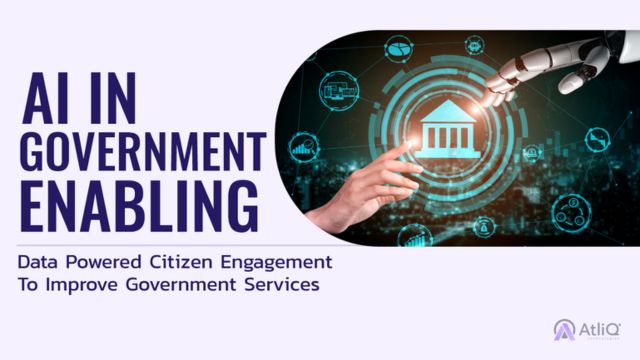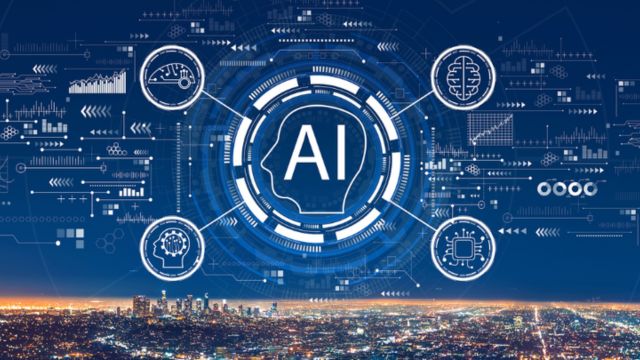Artificial intelligence (AI) is no more a futuristic idea in the digital era; rather, it is a present-day reality changing government operations and public service delivery. Public sector institutions are using artificial intelligence technology all around to help with decision-making, citizen involvement, operational efficiency, and more effective delivery of services. Governments are including artificial intelligence to create smarter, more responsive systems from predictive police to AI-powered chatbots for public inquiry.
This paper investigates how artificial intelligence is changing governance and raising citizens’ standard of living everywhere.
What is AI in governance?
In governance, artificial intelligence systems—including machine learning techniques, natural language processing (NLP), and predictive analytics—are applied to support public administration. These technologies enable governments to forecast results, tailor citizen services at scale, automate repetitive processes, and analyze vast volumes of data.
Important Areas AI is Enhancing Public Services

1. AI-Powered Chatbots and Virtual Assistants
One of the most visible uses of AI in governance is through chatbots and virtual assistants. These tools help handle citizen queries 24/7 without human intervention. For instance:
- India’s MyGov Helpdesk on WhatsApp offers COVID-19 resources and vaccination information via an AI chatbot.
- Australia’s Service NSW Virtual Assistant helps residents access government services, such as license renewals and housing information.
- The U.S. IRS Chatbot assists citizens with common tax-related questions.
These systems reduce waiting times, provide consistent responses, and enhance accessibility to public services.
2. Predictive Analytics for Public Safety and Resource Management
Governments are using AI algorithms to predict crime trends, identify high-risk areas, and optimize law enforcement deployment. Predictive analytics also support emergency response planning and environmental protection.
Examples include:
- Predictive policing in the United States and the United Kingdom using historical crime data to anticipate potential threats.
- Disaster response models in Japan that use AI to forecast earthquakes and tsunami patterns, enabling faster evacuation alerts.
- Traffic and pollution prediction systems in cities like Singapore and London to manage urban infrastructure more effectively.
3. AI in Healthcare and Pandemic Management
AI is playing a transformative role in public health management. During the COVID-19 pandemic, several governments deployed AI to:
- Track infection trends and hotspots in real time
- Predict resource needs such as ICU beds or oxygen supplies
- Automate COVID testing workflows using image recognition for chest scans
For example, South Korea used AI to trace contact and quarantine violations, while India’s Aarogya Setu app used Bluetooth and location data to monitor risk levels.
4. Digital Document Processing and Automation
Government departments are often burdened with paperwork. AI-based optical character recognition (OCR) and document classification tools are streamlining these processes.
Applications include:
- Automated passport verification
- AI-based resume screening for public jobs
- Tax filing automation
This significantly reduces errors, cuts administrative delays, and speeds up service delivery to the public.
5. AI in Education and Skill Development
Some countries are using AI to personalize learning pathways for students and trainees in government-run programs.
- China’s AI tutors offer adaptive learning in public schools.
- India’s DIKSHA platform integrates AI to recommend learning resources for teachers and students.
- AI career counseling tools help public employment departments guide citizens toward in-demand skills and sectors.
This not only improves the quality of education but also enhances job readiness.
Global Examples of AI in Governance
- Estonia is known for its digital government and uses AI for automatic business registration and tax filing.
- Singapore implements AI in urban planning and public transport optimization through its Smart Nation initiative.
- The United Arab Emirates appointed a Minister of State for Artificial Intelligence and uses AI for visa processing and smart policing.
These examples show how proactive AI adoption can elevate public trust and improve efficiency in government processes.
Legal and Ethical Issues
Even if artificial intelligence has many advantages for government, it is important to guarantee responsibility, openness, and justice. Serious issues in data include bias; in AI models, explainability is lacking; and surveillance tool abuse calls for attention.
Many governments nowadays are now:
Creating ethical frameworks for artificial intelligence (such as India’s Responsible AI rules or the EU AI Act).
Encouragement of public opinion and accessible data in AI implementations
building autonomous audit systems to track algorithmic decision-making
The Road Ahead
Integration of artificial intelligence will only become more important as digital government develops. Right rules, data governance systems, and citizen protections in place will help artificial intelligence to become a major enabler of effective, open, inclusive public service delivery.
Government’s future is intelligent rather than merely digital.
Conclusion
Artificial intelligence in governance is a transforming power capable of redefining how governments serve their people, not only a fad. Artificial intelligence is bringing in a new era of smart government from real-time service delivery to predictive analytics for improved planning. But innovation also carries responsibility; governments have to make sure artificial intelligence is used properly, ethically, and with the best interests of the public at first priority.
Discover how technology is transforming governance in India and beyond. Digital India MIB delivers trusted insights, expert analysis, and updates on digital policies, AI, and e-governance. Join us to stay informed and take part in building a digitally empowered society.













